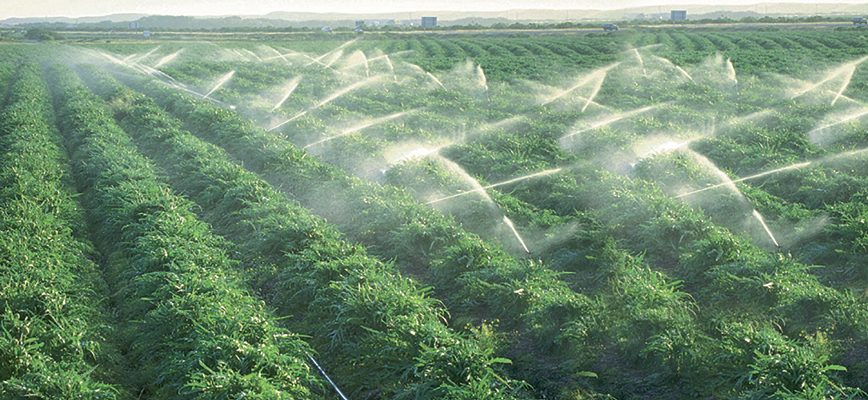The world’s food systems are in crisis, and big agribusiness is at its heart

Public finance has a key role to play in agriculture. Instead of propping up corporate interests, it should learn from local producers
Written by : Lorena Cotza, Coalition for Human Rights in Development and Ouafa Haddioui, Arab Watch Coalition
In 2017, the people of Zagora, Morocco, took to the streets in what became known as the ‘thirst revolution’. They were demanding safe drinking water and an end to the excessive use of water by big agricultural companies. In an already arid area, experiencing frequent droughts and heatwaves due to climate change, much of the available water supply was being used to grow watermelons for export to Europe. Residents had been left with an insufficient, unreliable and undrinkable supply. Twenty-three of the demonstrators were arrested.
In Morocco, irrigation for agriculture consumes almost 90% of the annual available fresh water. This intense extraction dates back to the colonial period, when the French authorities replaced the khettara – a traditional irrigation system developed and managed by local communities – with water-intensive structures that allow production to fulfil the demand of European markets.
Agriculture now constitutes almost 15% of Morocco’s GDP. The industry receives substantial support from public development banks such as the African Development Bank and the World Bank. Both banks supported the 2008 Green Morocco Plan, which aimed to “fully exploit the agricultural potential of the country”. The plan favoured export-oriented crops with high water requirements, such as watermelons, tomatoes and citrus fruits.
Morocco’s water crisis is not an isolated case. All around the world, water scarcity and food crises are being caused by the man-made disasters of climate change, colonialism, and an extractive economic model – pushed by governments, private companies and development finance institutions – that boosts productivity at any cost and disregards the rights of local communities.
Escalated by the pandemic and the subsequent global economic crisis, water and food shortages have reached unprecedented levels in dozens of countries, with small-scale producers – especially women – disproportionately affected. The situation is particularly concerning in conflict-affected countries like the Democratic Republic of Congo, Yemen, South Sudan, Afghanistan and Syria.
In November 2021, the World Food Programme’s executive director, David Beasley, warned that “conflict, climate change and COVID-19 [are] driving up the numbers of the acutely hungry, and the latest data show there are now more than 45 million people marching towards the brink of starvation”.
Urgent action is needed. Yet governments and public development banks (PDBs) continue to let big multinationals set the same failing agenda.
Public development banks
PDBs are key players when it comes to food systems. According to the International Fund for Agricultural Development, they invest about $1.4tn per year in the agriculture and food sector.
The Inter-American Development Bank, for example, is currently considering a $43m loan to Marfrig Global Foods, the world’s second-largest beef company. Marfrig and its suppliers have been linked to illegal deforestation in Brazil’s Amazon region, corruption and human rights abuses.
If the project is approved, public funds will be used to further expand industrial livestock production – a sector that dramatically increases methane emissions, deforestation, and other forms of air and water pollution. According to the Divest Factory Farming campaign, animal industrial agriculture is responsible for 14.5% of greenhouse gas emissions. Propping up the industrial meat industry undermines the Paris Climate Agreement and UN Sustainable Development Goals on climate action and responsible production.
Many public development banks also provide advice and shape state laws. In 2020, India approved three controversial farm bills following the recommendations of the International Monetary Fund and the World Bank. In a surprise move in November 2021, the Indian parliament voted to scrap these laws, after more than a year of mass protests, in which hundreds of thousands of small farmers held tractor rallies, blocked highways and camped in the capital, Delhi. According to local farmers’ organisations, these policies would have ended protective regulated markets and forced local farmers to negotiate prices with big agribusiness corporations such as the Adani Group.
International summits addressing world hunger are also dictated by PDBs and corporate interests.
In October 2021, representatives from 500 PDBs gathered at the second Finance in Common (FIC) Summit, to “strengthen [the banks’] commitment to post-pandemic recovery, sustainable development and agriculture”. Despite the banks touting their focus on inclusivity and sustainability, indigenous peoples, farmers, fisherfolk, herders, women and others from local communities – who are the real experts on these issues – were largely excluded from the summit.
Following another high-level international forum last year, the United Nations Food Systems Summit (UNFSS), hundreds of civil society organisations, grassroots groups, academics and UN experts criticised the meeting for allowing big agribusiness and corporations to set the agenda. Michael Fakhri, UN special rapporteur on the right to food, tweeted that the UNFSS had “turned its back on those most impacted by failed food systems”. The summit, which included the private sector – represented by the World Business Council for Sustainable Development, whose members include Nestlé, Bayer and Tyson Foods – failed to address urgent problems like the overuse of pesticides, land concentration, or environmental and labour abuses by companies.
We need food sovereignty
Sustainable solutions to the food crisis already exist, but they need more support. According to a report by the Action Group on Erosion, Technology and Concentration (ETC Group), ‘Who Will Feed Us?’, small-scale producers provide food to 70% of the world, while using only 25% of the resources.
Instead of fuelling the food crisis by serving the interests of agribusiness corporations, governments and public development banks should support projects based on the agroecology model. According to a network of grassroots groups that mobilised around the UNFSS, agroecology “encourages diversity – of crops, people, farming methods, and knowledges – to allow for locally-adapted food systems that are responsive to environmental conditions and community needs”. This includes practices such as permaculture, agroforestry, organic farming and biodynamic farming.
Farmers across Asia, many of whom are suffering some of the worst impacts of climate change, offer a model for agroecology methods that minimise greenhouse gas emissions and are more resistant to climate disasters. These methods include using traditional and more resistant seeds, and less pollutant biofertilisers and biopesticides, more efficient irrigation systems, cleaner energy sources, and avoiding monoculture plantations.
We can no longer afford to pour billions in public money into projects that exacerbate debt, inequalities, poverty and climate change. Those who have the power and resources to shape food systems and address food crises should listen and learn from local communities and small-scale food producers who have the solutions to sustainably feed the world.
Also published in: https://www.opendemocracy.net/en/oureconomy/the-worlds-food-systems-are-in-crisis-and-big-agribusiness-is-at-its-heart/
